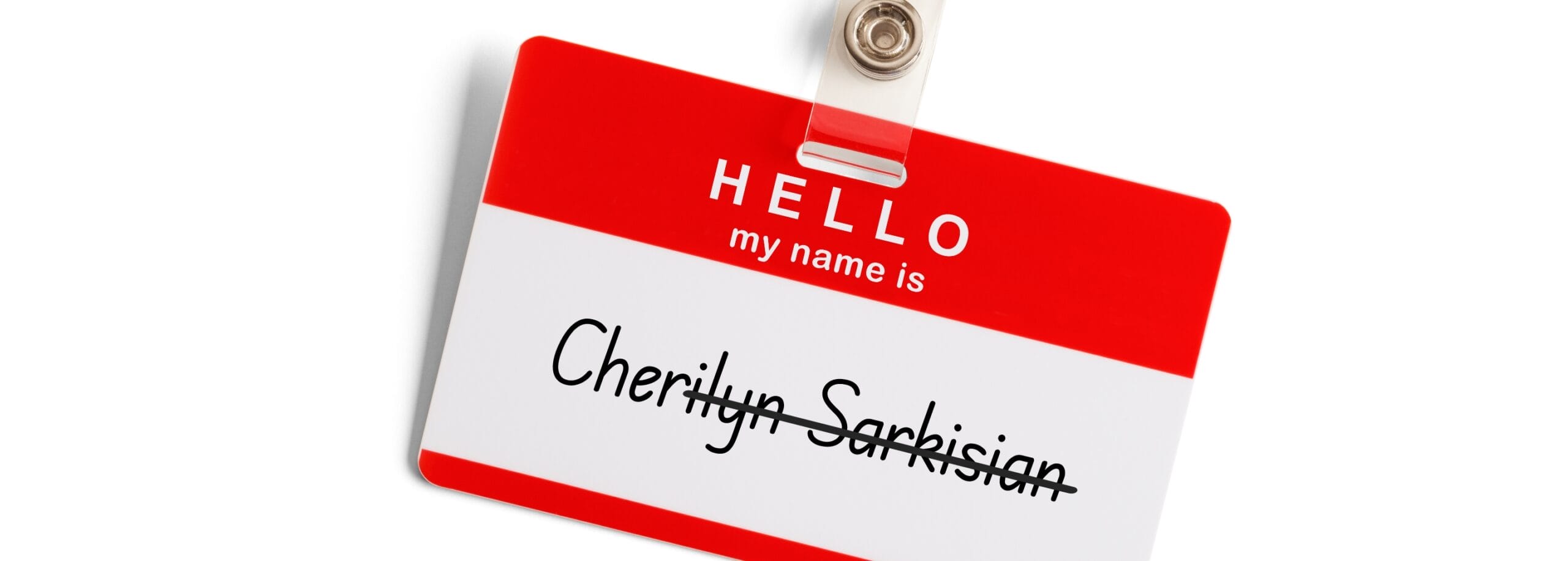When I started in professional services marketing, one of my first assignments was to create an announcement for a law firm’s name change.
Back then, firms commonly included four to six names in their titles, like a roll call of partners past and present. The profession was just coming to terms with retiring stationery that listed every partner’s name engraved down the side. (To really mark this in your history books, my announcement was printed on actual paper and mailed via the USPS!)
The client was trimming its name from five partners down to two, sparking a concern that the omitted names might suggest those partners had jumped ship, been fired or—worse—passed on. To counter this, we crafted a spirited announcement with engaging photos and quotes from the three “missing” partners. The goal? Showcase their humor and active roles in the firm. It worked. Clients loved it, the partners felt celebrated and the firm successfully made the switch.
Rise of the “Street Name”
It wasn’t long before many law firms followed suit, and double-barreled law firm names became standard practice. Even if the legal name didn’t change on the paperwork, firms began adopting shortened monikers, or “street names,” for marketing and logo design. This wasn’t just trendiness—it was practical. For prospective and current clients, these shorter identity markers mirrored what they were already calling the firms informally.
The digital age only heightened this need. When your name has to fit on a phone screen or into a social media post, five names won’t cut it.
One Name to Rule Them All
Today we see the ultimate evolution—single-name law firms. Am Law 100 powerhouses like Skadden, Sidley and McDermott have embraced it. Am Law 200 firms, like Manatt and Bracewell, have done the same. By the summer of 2024, over 30% of Am Law 100 firms and 28% of Am Law 200 firms had made the leap to solo branding on their websites.
Why? Short names carry big advantages.
Why Single Names Work
- Simplicity is magnetic. As consumers lean toward minimalism, sleek branding signals modernity and sophistication.
- Projecting confidence. Single names say, “We know who we are, and so does everyone else.”
- Halo effect. If Skadden can do it and own the space, adopting a similar strategy suggests you’re playing in the same league.
- Unforgettable. Humans are naturally drawn to familiar and simple words, making streamlined names easier to remember.
- Design-friendly. Good luck balancing five names in a logo. With a single name, your visuals gain impact, readability and adaptability for digital platforms.
A Word About Initials
Yes, it’s tempting to shorten a long name to initials, especially if your internal teams use them. But beware: Initial-based names often fall flat. Why?
- Poor retention. Abstract strings of letters don’t stick in the brain, especially when clients are working with multiple similarly abbreviated firms. Your name becomes just another jumble in the alphabet soup.
- Personality gap. Names like Skadden or Choate feel human—letters feel robotic. Initials don’t evoke trust or personal connection, which are essential in marketing professional services.
- Design challenges. Even the best designer can struggle to make “ABC” look fresh. Initials might have their place on cuff links or collars—assuming anyone still wears them—but it’s hard to make them stand out in a sea of sameness at, for instance, a sponsored event.
When to Go Single
What are the right moments for this kind of shift? Consider it when…
- You want to modernize your image.
- It’s time for a logo redesign.
- You’re planning a full rebrand.
- Your website is getting a refresh.
- You’ve prioritized a push on social media, and your name needs to fit neatly into those templates.
- Research shows people call you by a shorter name.
When to Hold Back
Despite the many perks of single-name branding, it’s not always the right move. Here are four red flags that might signal you’re better off sticking to your current identity.
- The name is unpronounceable, overly common or awkward.
- Your industry is already a swamp of similar names.
- The name is difficult to spell or remember.
- You simply can’t afford to change everything from signage to business cards right now.
What About That URL?
Worried about securing the perfect domain? Don’t be. You can pair your single name with a simple addition like “law” or “firm” or even creative options like “meet” or “workwith.” And remember, redirecting your old URL to the new one ensures clients won’t get lost on the way to your site.
Iconic Single-Name Brands
The legal world isn’t the only place where single names shine. Titans like Accenture, Deloitte and Pepsi have embraced it. On a cultural level, think of the timeless impact of celebrities like Cher, Madonna or Bono. One name. Universally recognized.
The Final Verdict
Switching to a single name is a statement that you’re modern, confident and ready to stand apart from the crowd. A strong, streamlined name makes you more memorable and easier to notice, whether it’s on a corner office building or a tiny smartphone screen.
If the idea aligns with your goals, we’re happy to talk with you about taking the leap into single-name branding. After all, sometimes less really is more.
